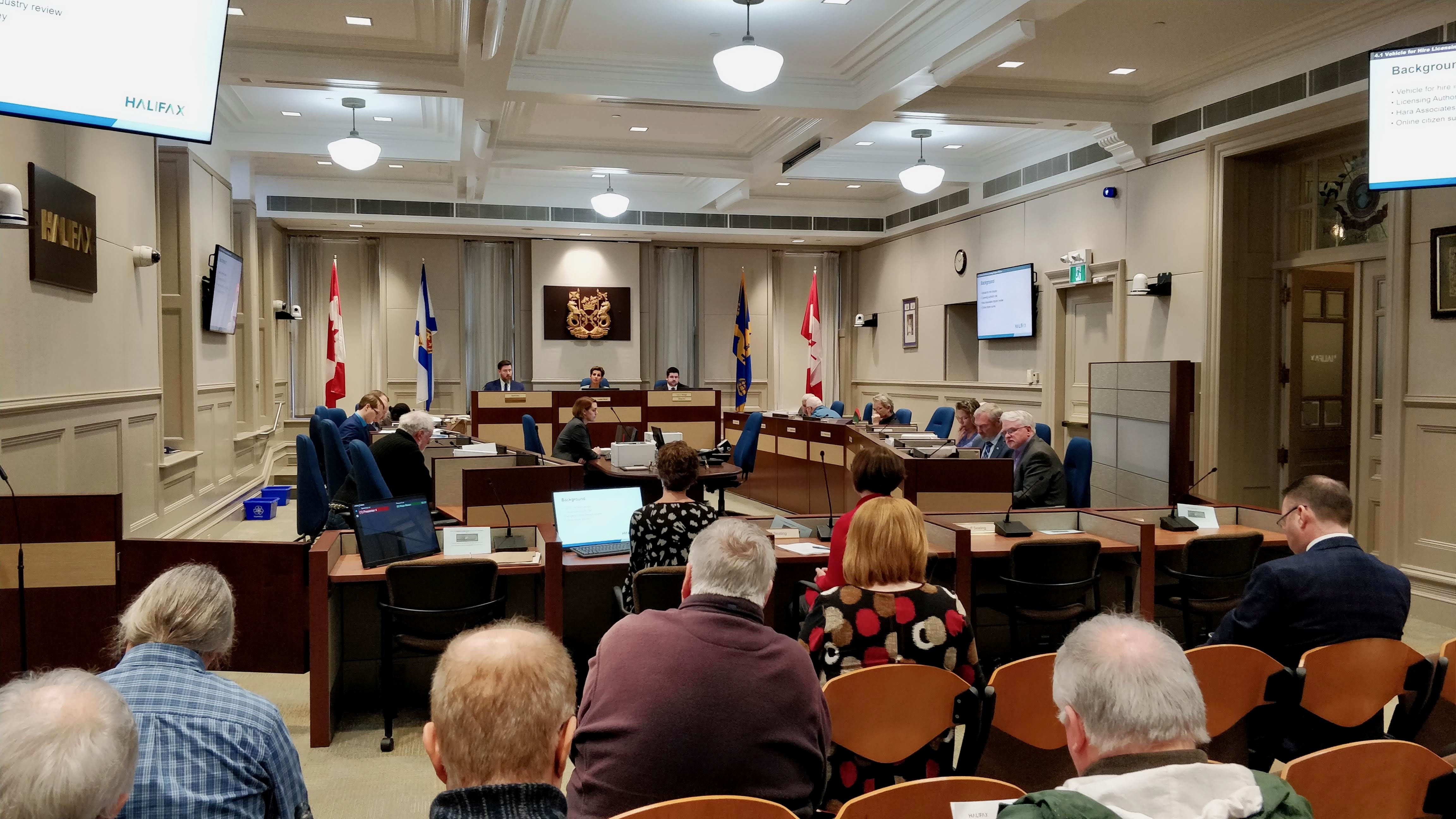Bylaw
Transportation committee approves amendments to taxi and limousine bylaw
Suggestions include mandatory GPS in taxis and cultural sensitivity training

caption
Tuesday's transportation standing committee discussed the taxi and limousine bylaw.Halifax could have a more modernized taxi and limousine industry, if 21 bylaw amendments are approved by regional council.
The proposed changes are based on a 2018 report on the Halifax Regional Municipality’s taxi and limousine industry, conducted by Ottawa-based Hara Associates.
They were approved by the transportation standing committee on Tuesday and sent to regional council for further discussion.
The proposed amendments include:
- GPS in all taxis.
- a cultural sensitivity training course for all drivers.
- a winter driving course for all drivers.
- having drivers meet the English language benchmark level 5. This means they must be able to hold a basic conversation with passengers in English.
- all taxis having credit and debit payment options.
An elimination of Halifax’s three-part zoning system that separates Halifax, Dartmouth and the surrounding areas was also proposed. Under the current system, drivers can drop-off passengers in a different zone, but they can only pick up in their designated area.
Many members were in favour of changes to the zoning system.
“I cannot tell you how many times my residents have complained about not being able to get to Dartmouth,” said deputy mayor Tony Mancini.
The report also suggests increasing the number of taxi licenses from 1,000 to 1,600. This would tackle supply and demand issues and clear its wait-list. Currently there are about 500 people on the list.
The remaining 100 licenses would be allocated to female drivers to encourage gender diversity in the industry.
Not included in the proposed amendments were the municipality’s plans to increase the number of accessible taxis. Two potential options were outlined.
The first is the procurement of an accessible taxi service to supplement Access-A-Bus, a Halifax Transit service for people with mobility issues. The service would operate as a two-year pilot, with an option to renew after the first year.
The second option is to introduce business grants for accessible vehicle purchases, and to subsidize accessible taxi license holders.
Coun. Waye Mason supported the use of grants and subsidies.
“Without a grant to buy a vehicle and an ongoing subsidy the drivers are not making enough money. It’s a market failure situation,” said Mason.
This would require a change to Halifax’s Charter, and would need approval by the provincial government.
The transportation standing committee is scheduled to meet again on Feb. 28.

